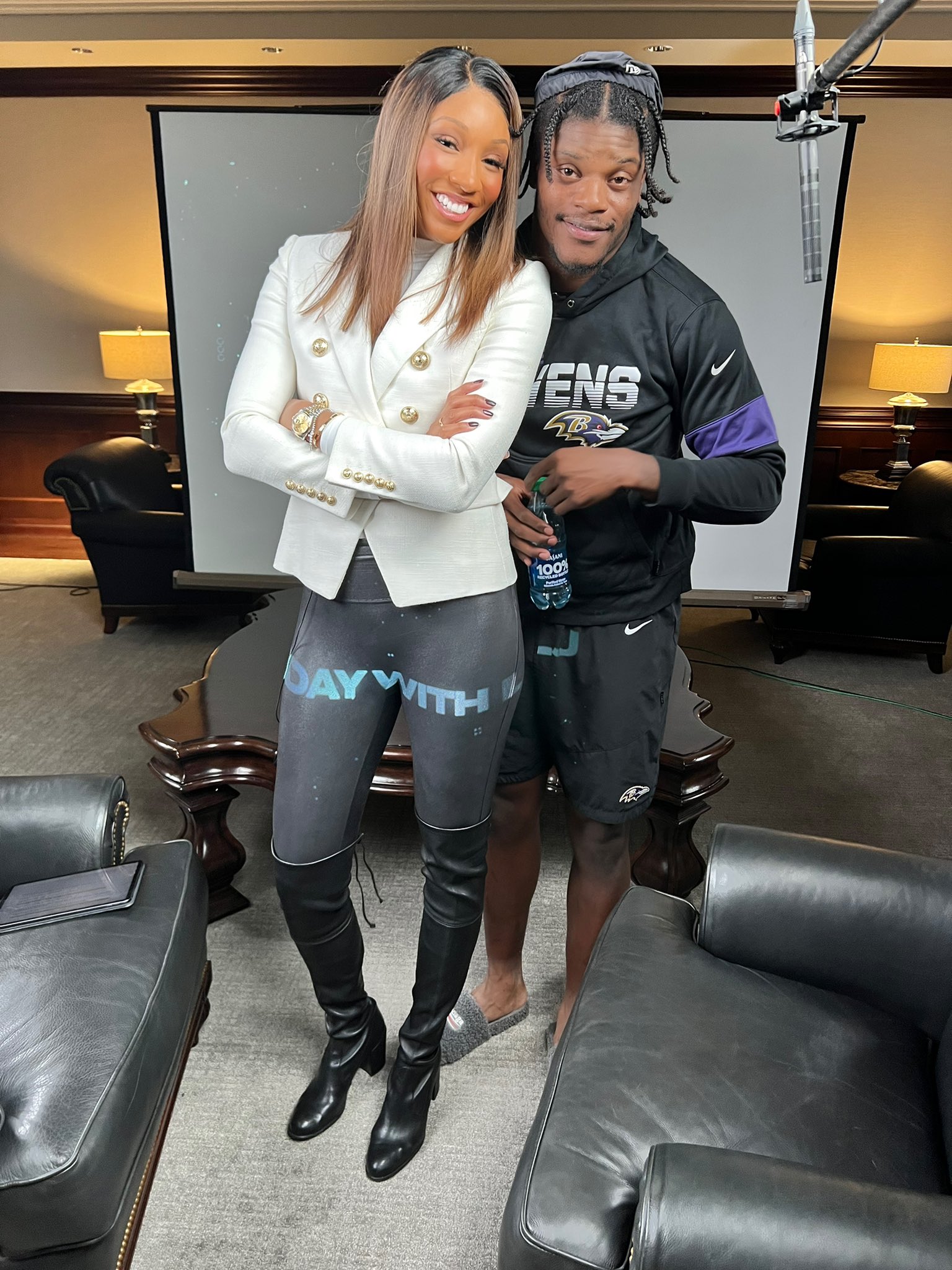Is Maria Taylor Trans? Understanding The Athlete's Identity And Impact
In the world of sports, discussions around gender identity and representation have become increasingly relevant. Maria Taylor, a prominent sports broadcaster and former athlete, has been at the forefront of these discussions, particularly regarding her identity. The question, “Is Maria Taylor trans?” is not just about her personal life but also encompasses broader issues of acceptance and visibility in sports.
Maria Taylor has built an impressive career, becoming a trusted voice in sports journalism. As fans and followers, it is essential to approach her story with sensitivity and respect, recognizing her achievements and the challenges she may face in a public arena. This article will explore Maria Taylor's background, her rise in sports broadcasting, and the implications of gender identity within the realm of athletics.
Throughout this article, we will delve into various aspects of Maria Taylor's life, including her early career, her contributions to sports media, and her role as a trailblazer for gender inclusivity. By understanding her journey, we can appreciate the importance of representation and support for all athletes, regardless of their gender identity.
Table of Contents
- Biography of Maria Taylor
- Maria Taylor's Career Journey
- Impact on Sports Broadcasting
- Gender Identity in Sports
- Public Perception and Media Representation
- Advocacy and Support for LGBTQ+ Athletes
- Statistics on Gender Identity in Sports
- Conclusion
Biography of Maria Taylor
Maria Taylor was born on May 12, 1987, in Alpharetta, Georgia. She attended the University of Georgia, where she excelled in both volleyball and basketball. Taylor graduated with a degree in Broadcast News and has since made significant strides in the field of sports journalism.
| Personal Information | Details |
|---|---|
| Name | Maria Taylor |
| Date of Birth | May 12, 1987 |
| Nationality | American |
| Education | University of Georgia |
| Profession | Sports Broadcaster |
Maria Taylor's Career Journey
After graduating, Maria Taylor began her career as a sports reporter for local stations before joining ESPN. Over the years, she has covered numerous high-profile events, including the NCAA Championships and the NBA Finals. Her ability to connect with audiences and deliver insightful commentary has garnered her a loyal following.
Key Milestones in Maria Taylor's Career
- Joined ESPN in 2014, covering college sports.
- Served as the host for the NBA Countdown show.
- Reported on major events like the College Football Playoff and the Super Bowl.
- Won the prestigious Gracie Award for her work in sports broadcasting.
Impact on Sports Broadcasting
Maria Taylor has made a significant impact on sports broadcasting, not only as a talented journalist but also as a role model for aspiring female broadcasters. Her presence in a predominantly male industry has opened doors for many women and minorities, challenging traditional norms and promoting diversity.
Gender Identity in Sports
The question of whether Maria Taylor is transgender has sparked discussions about gender identity in sports. It is crucial to approach this topic with respect and understanding, acknowledging that every individual's journey is unique. Gender identity is a deeply personal aspect of one's life, and public speculation can lead to harmful assumptions.
Understanding Gender Identity
Gender identity refers to a person's internal understanding of their own gender, which may or may not align with the sex assigned at birth. It is essential to support individuals in expressing their identities authentically, particularly in high-visibility professions like sports.
Public Perception and Media Representation
Media representation plays a vital role in shaping public perception of gender identity issues. Maria Taylor's visibility in sports broadcasting contributes to a broader acceptance of diverse identities and experiences. The media's portrayal of athletes can either reinforce stereotypes or challenge them, making it essential to approach these narratives thoughtfully.
Advocacy and Support for LGBTQ+ Athletes
Maria Taylor has been an advocate for LGBTQ+ rights and inclusivity in sports. Her platform allows her to raise awareness about the challenges faced by LGBTQ+ athletes and promote a more accepting environment within the sports community.
Ways to Support LGBTQ+ Athletes
- Educate yourself and others about gender identity and inclusivity.
- Support organizations advocating for LGBTQ+ rights in sports.
- Encourage open conversations about gender identity in athletic settings.
- Promote and celebrate diverse athletes in sports media.
Statistics on Gender Identity in Sports
Research shows that a significant number of athletes identify as LGBTQ+. According to a study by the LGBTQ+ Sports Coalition, approximately 11% of athletes in high school and college identify as LGBTQ+. This highlights the importance of creating inclusive environments where all athletes feel accepted and supported.
Conclusion
In conclusion, the question of whether Maria Taylor is trans opens up a vital conversation about gender identity, representation, and the importance of inclusivity in sports. While it is essential to respect her privacy and personal journey, we can also support the broader movement for acceptance and understanding within the athletic community. As fans and advocates, let us celebrate the accomplishments of all athletes and strive for a world where everyone can express their identity freely.
We encourage readers to leave comments, share this article, and continue the conversation around gender identity in sports. Together, we can foster a more inclusive environment for all athletes.
Thank you for reading! We hope you found this article informative and inspiring. Be sure to visit our site for more articles on sports, gender identity, and advocacy.
Article Recommendations
- Nayara Assuncao A Rising Star In The Digital World
- His Shadow The Enigmatic Tale Of Luna Marissa Gilbert
- Vijay Varma Wife Age Everything You Need To Know


